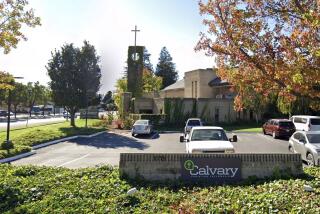Court Upholds Religious Freedom for Divorced Parents
- Share via
PHILADELPHIA — The Superior Court has upheld equal rights of a divorced couple of different faiths to the religious education of their children, saying a Catholic father must continue to take them to Jewish Sunday school, but can’t be barred from taking them to Catholic Mass.
In a 59-page opinion written by Judge John T.J. Kelly, issued last week, the court decided 2-1 that it would be a violation of the father’s constitutional rights to prevent him from exposing his children to his culture.
The case involved Pamela and David Zummo, a couple who married in December, 1978, had two boys and a girl, and divorced in April, 1988.
The couple acknowledged that before the marriage they agreed any children would be reared in the Jewish faith, the faith of the mother.
After the divorce the parents shared legal custody, with David Zummo having visitation rights every other weekend.
The court, after a historic examination of religious freedom and parental rights, took a hands-off position, saying, “Judges and state officials are deemed ill-equipped to second-guess parents, and are precluded from intervening in absence of ‘powerful countervailing interests.’ ”
Those interests could be a substantial risk of harm to a child, the court said. Absent that, it said, “A parent may pursue whatever course of religious indoctrination which that parent sees fit, at that time, during periods of lawful custody or visitation.”
After the divorce, Pamela Zummo had successfully petitioned the lower court to require her ex-husband to take their eldest child to instruction in the Jewish faith and, on the grounds that it would create distress to expose the children to Catholicism, to prevent him from taking them to Catholic services.
The court said it could not enforce the premarital oral agreement.
“Enforcement plainly encroaches upon the fundamental right of individuals to question, to doubt and to change their religious convictions, and to expose their children to their changed beliefs,” the court said.


